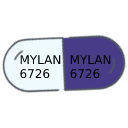Uses
Zonisamide is a type of anticonvulsant that lessens the brain’s irregular electrical activity and is combined with other drugs to treat seizures. It is used mainly for epilepsy and other types of seizures, but has also been studied for use in patients with Parkinson’s disease, psychotic conditions, and nerve pain.
Side Effects Of Zonisamide
Zonisamide can cause side effects. If any of these symptoms persist or become serious, talk to your doctor. Symptoms include, but are not limited to:
- Nausea or vomiting
- weight loss
- constipation or diarrhea
- heartburn
- dry mouth
- headache
- dizziness
- confusion
- irritability
- difficulty falling asleep or staying asleep
- difficulty with memory
- pain such as burning, numbness, or tingling in the extremities
- uncontrollable eye movements or double vision
- changes in taste
Some side effects may be serious. Although the following symptoms are rare, you should talk to your doctor immediately if you do experience any of them.
- rash
- blistering or peeling of skin
- longer or more severe seizures
- sudden back pain or stomach pain
- painful urination
- bloody or dark urine
- cough or sore throat
- fever or chills
- sores in mouth
- bruising easily
- trouble with speaking or vocabulary
- confusion or difficulty concentrating
- lack of coordination, such as difficulty walking
- severe weakness or exhaustion
- intense muscle pain
- loss of appetite
- fast, shallow breathing
- arrhythmia
- fainting spells
Zonisamide can cause metabolic acidosis- a condition where acid collects in the fluid of the body and lowers its pH. Metabolic acidosis can lead to other medical issues if left untreated, including problems with the bones and kidneys. Talk to your doctor before taking zonisamide, and never ignore persisting side effects.
Warnings & Precautions
Before taking zonisamide, tell your doctor and pharmacist:
- If you are allergic to any drugs, especially zonisamide, sulfa drugs, diuretics (“water pills”), or diabetic oral medications.
- What drugs you currently take including prescription drugs, over-the-counter medications, vitamins, or nutritional supplements. Also mention any herbal supplements that you take, particularly St. John’s Wort.
- If you are pregnant or plan to become to become pregnant. Use birth control while being treated with zonisamide. If you become pregnant while taking zonisamide tell your doctor right away, as this drug may cause birth defects.
- If you are breastfeeding, as zonisamide is present in the breastmilk of women who take it. If you are breastfeeding while taking zonisamide, watch closely to see if your baby is lethargic or not gaining weight.
- If you are adhering to a keto (low carb, high fat) diet.
- If you currently have or ever have had problems with your kidneys, liver, or lungs- including trouble breathing.
- If you currently have diarrhea or develop diarrhea at any point while taking zonisamide.
- If you will be having any surgeries, including dental surgeries.
- Be especially sure to mention if you take amiodarone, antifungals, carbonic anhydrase inhibitors such as acetazolamide or methazolamide; clarithromycin, erythromycin, diltiazem, fluvoxamine, HIV protease inhibitors such as indinavir and ritonavir, medications for irritable bowel syndrome, motion sickness, Parkinson’s, ulcers, or urinary problems. Also be sure to tell your doctor or pharmacist if you are taking other medications for seizures such as carbamazepine, phenobarbital, phenytoin, or valproic acid; nefazodone, hormonal birth control; rifabutin, rifampin; verapamil.
Dosage Of Zonisamide
Zonisamide is available as an oral capsule, either 25mg or 100mg, and is usually taken once or twice per day. It can be taken with or without food and should be taken around the same time each day. Always follow the directions on your prescription label exactly and ask your doctor or pharmacist about any instructions that are confusing. Do not take any more or less of zonisamide than your doctor has prescribed.
Never chew, crush, or split a capsule; always swallow it whole.
Your doctor will likely start you on a lower dose of zonisamide and increase it gradually when therapy begins. The dose should not be increased more than once every two weeks. When therapy is concluding, your doctor will likely wean you off by decreasing the dose over time.
While zonisamide will not cure your condition, it can improve your symptoms. It may take up to 2 weeks or longer after therapy begins for you to feel all of the benefit of zonisamide, so do not stop taking it without talking to your doctor. Never stop taking this drug suddenly, even if you feel better or worse than you did before taking it, as that can make your seizures worse. For any questions on changes in drug therapy, talk to your doctor.
Other
Your doctor may monitor your treatment by ordering lab tests, so always adhere to lab and doctor appointments. Never let anyone else take your prescription medication, and talk to your pharmacy with questions about refills.
Keep a list of drugs that you take- including supplements, herbal supplements, over-the-counter medications, and vitamins- and bring it with you to doctor appointments and if you are admitted to the hospital.
Source
All information has been provided courtesy of MedLinePlus from the National Library of Medicine and from the FDA.



